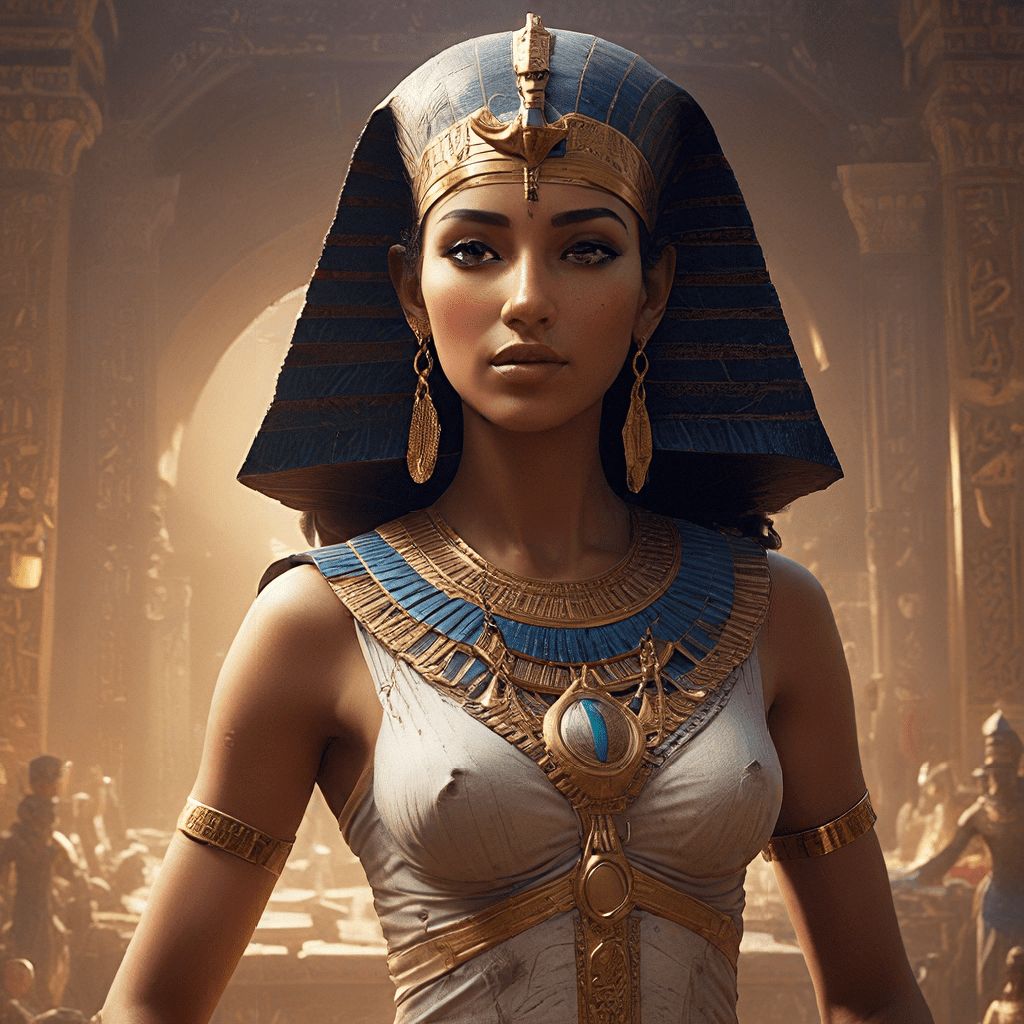The Weighing of the Heart: A Journey into the Egyptian Afterlife Justice
1. Introduction: Unveiling the Mysteries of the Egyptian Afterlife
Ancient Egyptians believed deeply in an afterlife, a realm where they would continue to exist after death. This journey into the underworld was a significant part of their belief system, and the “Weighing of the Heart” ceremony played a crucial role in determining their fate. This ceremony was not about punishment but about balancing a person’s actions against the principles of “Ma’at”—justice, truth, and cosmic order. It was a moment of reckoning, a trial by the gods that mirrored the balance needed for a harmonious existence in the afterlife.
2. The Hall of Two Truths: Entering the Realm of Judgment
The Hall of Two Truths was the gateway to the afterlife, where the deceased faced judgment before Osiris, the god of the underworld and the judge of the dead. Anubis, the jackal-headed god, guided the deceased to the Hall and weighed their heart. He was the guardian of the underworld, ensuring a fair trial and maintaining order. Thoth, the god of wisdom and knowledge, kept the records of the deceased’s life. He was the scribe of the gods, ensuring that the scales of justice were balanced and that the final verdict was accurate.
3. The Heart and the Feather of Ma’at: Symbols of Truth and Balance
The heart was the embodiment of a person’s soul, containing all their actions and thoughts from their life on Earth. The feather of Ma’at, representing truth and cosmic order, was the symbol of perfect balance. This feather was a physical representation of the ideal state of existence, where everything was in harmony and order. Weighing the heart against the feather was a symbolic act of comparing a person’s soul with the ideal standard of Ma’at.
4. The Scales of Justice: A Balance Between Good and Evil
The scales used in the Weighing of the Heart were not simply a tool for judgment; they represented the cosmic balance that the Egyptians believed governed everything in the universe. A “light heart” signified a life lived in accordance with Ma’at, and therefore worthy of entering the afterlife. The concept of “Ma’at” was central to the ancient Egyptian worldview. It represented a cosmic order where justice, truth, and harmony prevailed. The weighing of the heart was not simply a judgment but a reflection of this universal principle.
5. The Consequences of the Weighing: Eternal Life or Devouring by the Monster Ammit
The outcome of the Weighing of the Heart determined the deceased’s fate. If the heart balanced the feather of Ma’at, the deceased was deemed worthy of eternal life in the afterlife. They would join Osiris in the Fields of Reeds, a paradise where they would live in peace and happiness forever. However, if the heart was heavier than the feather, it was deemed impure, signifying a life filled with evil and injustice. The monster Ammit, a creature with the head of a crocodile, the body of a lion, and the hindquarters of a hippopotamus, would devour the heart of the wicked. This devouring symbolized the end of existence for those who had failed the test, eliminating the source of their evil from the world.
6. The Book of the Dead: Guidance for the Afterlife Journey
The Book of the Dead was a collection of spells and rituals that helped the deceased navigate the perils of the underworld. It was a guidebook for the afterlife journey, designed to aid the souls in their final moments and their passage into the next world. It contained spells that protected the deceased from evil spirits, confessions of innocence to appease the gods, and instructions on how to navigate the underworld’s various challenges. Specific spells were designed to aid the souls in the Weighing of the Heart, ensuring that their hearts were deemed pure and worthy of entering the afterlife. It served as a map, a compass, and a source of comfort during this critical moment of transition.




